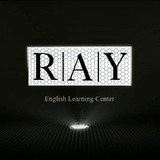Blueprint for IELTS Students.pdf
446.4 KB
Blueprint for IELTS preparation. (We used this one long ago)
📝 Items in a series: a common mistake 📝
Take a look at the sentence from a student's IELTS essay.
🗒 "While children need healthy food, books, toys, clothes, their parents might spend financial aid on expensive phones, electronics, cars."
It contains two examples of the same mistake - not separating the last item in a series. The last item in a series must be separated with "and" or "or."
🗒 "While children need healthy food, books, toys, and clothes, their parents might spend financial aid on expensive phones, electronics, or cars."
Now take a look at another sentence.
🗒 "Developed countries should provide non-financial help through organizing exchange programs for specialists, sharing technologies, establishing educational and health institutions."
The mistake is the same even though it might not look like one immediately - do not let the "and" confuse you. So what are the items that we have in a series? They are: organizing, sharing, establishing. So we must have "and" before establishing. And the "and" we have connects completely different items: "educational" and "health."
🗒 "Developed countries should provide non-financial help through organizing exchange programs for specialists, sharing technologies, and (or) establishing educational and health institutions."
What I am talking about now is standard academic writing. Curiously, in creative writing both underuse and overuse of conjunctions are valid stylistic devices. The former is called "asyndeton" and the latter is called "polysyndeton." Here are some examples:
- Asyndeton: "Children need playgrounds, toys, cartoons, ice-creams, sneakers."
- Polysyndeton: "Children need playgrounds and toys and cartoons and ice-creams and sneakers."
But asyndeton and polysyndeton belong in creative writing only. In essays, always separate the last item in a series with "and" or "or."
Take a look at the sentence from a student's IELTS essay.
🗒 "While children need healthy food, books, toys, clothes, their parents might spend financial aid on expensive phones, electronics, cars."
It contains two examples of the same mistake - not separating the last item in a series. The last item in a series must be separated with "and" or "or."
🗒 "While children need healthy food, books, toys, and clothes, their parents might spend financial aid on expensive phones, electronics, or cars."
Now take a look at another sentence.
🗒 "Developed countries should provide non-financial help through organizing exchange programs for specialists, sharing technologies, establishing educational and health institutions."
The mistake is the same even though it might not look like one immediately - do not let the "and" confuse you. So what are the items that we have in a series? They are: organizing, sharing, establishing. So we must have "and" before establishing. And the "and" we have connects completely different items: "educational" and "health."
🗒 "Developed countries should provide non-financial help through organizing exchange programs for specialists, sharing technologies, and (or) establishing educational and health institutions."
What I am talking about now is standard academic writing. Curiously, in creative writing both underuse and overuse of conjunctions are valid stylistic devices. The former is called "asyndeton" and the latter is called "polysyndeton." Here are some examples:
- Asyndeton: "Children need playgrounds, toys, cartoons, ice-creams, sneakers."
- Polysyndeton: "Children need playgrounds and toys and cartoons and ice-creams and sneakers."
But asyndeton and polysyndeton belong in creative writing only. In essays, always separate the last item in a series with "and" or "or."
People don't appreciate the right way anymore - they like to be deceived by fake promises. #fuckit
Forwarded from Alisher Yakubjanov
This media is not supported in your browser
VIEW IN TELEGRAM
⚡️Yangi ONLINE guruhga qabul boshlandi.
3 APRELDAN yangi BEGINNER guruh boshlanadi.
🔥Teacher: Alisher Yakubjanov (IELTS 8.0)
► Darslar: Seshanba, Payshanba, Shanba va Yakshanba kunlari
► Dars davomiligi: 2 soat (minimum)
► Narx: 450 ming so'm
❗️Birinchi dars: 3 Aprel soat 19:30 da
Kursga róyhatdan ótish uchun: 994782500 // @ray_administration
Telegram | Instagram | Alisher Yakubjanov
3 APRELDAN yangi BEGINNER guruh boshlanadi.
🔥Teacher: Alisher Yakubjanov (IELTS 8.0)
► Darslar: Seshanba, Payshanba, Shanba va Yakshanba kunlari
► Dars davomiligi: 2 soat (minimum)
► Narx: 450 ming so'm
❗️Birinchi dars: 3 Aprel soat 19:30 da
Kursga róyhatdan ótish uchun: 994782500 // @ray_administration
Telegram | Instagram | Alisher Yakubjanov
The New Yorker - April 10, 2023
The New York Times - 03 April 2023
The New York Times - 03 April 2023
Cosmos, Quickly: Remembering the Genius of Vera Rubin - Scientific American
https://www.scientificamerican.com/podcast/episode/cosmos-quickly-remembering-the-genius-of-vera-rubin/
https://www.scientificamerican.com/podcast/episode/cosmos-quickly-remembering-the-genius-of-vera-rubin/
Scientific American
Cosmos, Quickly: Remembering the Genius of Vera Rubin
Vera Rubin went from a teenager with a cardboard telescope to the “mother of dark matter.” Some of her colleagues and mentees weigh in on her fascinating life and how she was a champion for women in astronomy.
